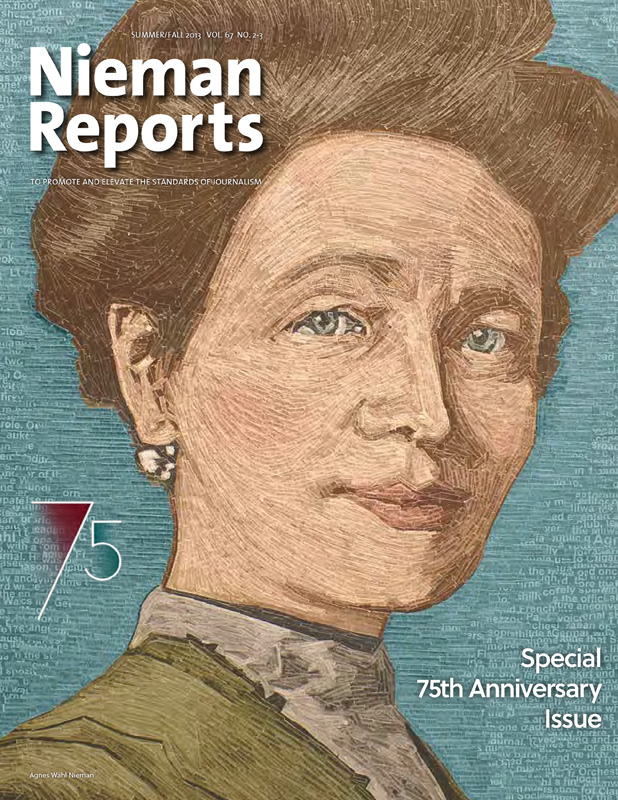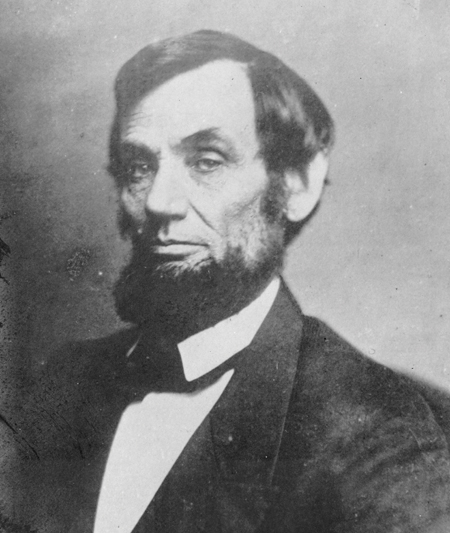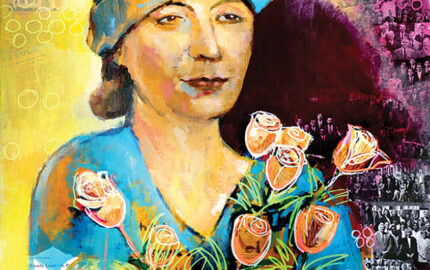
75th Anniversary Issue
As she lay dying, the widow of a Milwaukee newspaper editor made a gift that has now invigorated journalism for 75 years. Agnes Wahl Nieman, a well-educated woman with a fondness for bicycling, willed money to Harvard to “promote and elevate the standards of journalism.” That $1.4 million bequest (worth about $23 million in today’s dollars) funded the Nieman Fellowship program that has brought 1,442 journalists from around the world to Harvard for a year of study. To celebrate the Nieman Foundation for Journalism’s 75th anniversary, Nieman Reports tells the stories of 75 Nieman Fellows, among them pioneers in biography, documentary filmmaking, and investigative journalism.

A graduate seminar in 1989 on Abraham Lincoln still inspires Wickenden. Mathew B. Brady/Courtesy Library of Congress
Executive editor of The New Yorker since 1996, Wickenden wrote “Nothing Daunted,” the tale of her grandmother and a friend who left lives of privilege in 1916 to teach the children of homesteaders
 Would you have enjoyed having dinner with Abraham Lincoln?” In 1989, David Herbert Donald was working on his biography of Abraham Lincoln and teaching a graduate seminar on Lincoln and the Civil War. I was a student in the course. There were about eight of us, and he sparked our fascination with Lincoln’s strategic genius and repeated political defeat, his fierce ambition, his sense of humor, and his melancholia. I couldn’t imagine anyone answering “no.” But professor Donald posited that the dinner would not have been a rousing evening. We were startled, especially because he’d always refused to disclose his opinions about Lincoln. It must have been a way to provoke a livelier discussion.
Would you have enjoyed having dinner with Abraham Lincoln?” In 1989, David Herbert Donald was working on his biography of Abraham Lincoln and teaching a graduate seminar on Lincoln and the Civil War. I was a student in the course. There were about eight of us, and he sparked our fascination with Lincoln’s strategic genius and repeated political defeat, his fierce ambition, his sense of humor, and his melancholia. I couldn’t imagine anyone answering “no.” But professor Donald posited that the dinner would not have been a rousing evening. We were startled, especially because he’d always refused to disclose his opinions about Lincoln. It must have been a way to provoke a livelier discussion.He gave us a list of topics for our final paper—subjects he was exploring in his research. I picked “Lincoln and Race,” and wrote about Lincoln’s relationship with Frederick Douglass. He urged me to publish it, which I later did, in The Wilson Quarterly. I didn’t suspect that almost 25 years later, I’d be engrossed in my own project about the Civil War, and still be thinking about that question—even while editing pieces about President Obama, another fan of the 16th president. Donald’s magnificent “Lincoln” was published in 1995; the biography, marked with Post-its, is in my study. He wrote in his preface that the book “seeks to explain rather than to judge.” It’s not a bad motto for historians—or journalists, for that matter. I wish I could have dinner with him.

